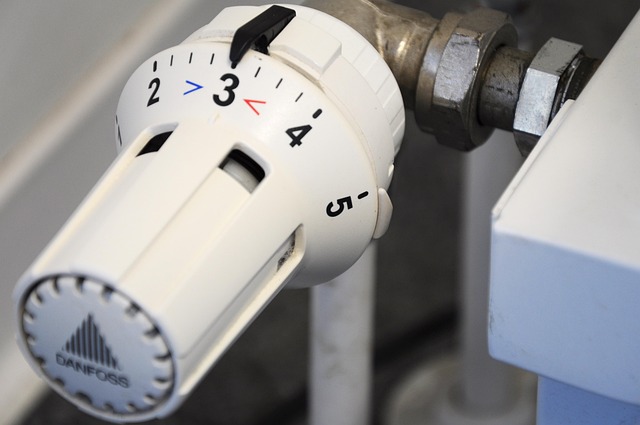Living with Knee Pain? Explore Replacement Options
Knee pain can significantly impact one's quality of life, affecting mobility and daily activities. For those experiencing chronic knee pain, knee replacement surgery may offer a potential solution. This article explores the various aspects of knee replacement, from the surgical procedure to recovery and long-term outcomes, providing valuable information for those considering this treatment option.

What is prosthetic knee replacement surgery?
Prosthetic knee replacement surgery, also known as total knee arthroplasty, is a surgical procedure that replaces damaged parts of the knee joint with artificial components. During the operation, surgeons remove the damaged cartilage and bone from the thighbone, shinbone, and kneecap, replacing them with prosthetic components made of metal alloys, high-grade plastics, and polymers. These artificial parts are designed to mimic the natural function of a healthy knee joint, allowing for smoother movement and reduced pain[1].
The procedure typically takes between one to three hours, depending on the complexity of the case. Patients usually receive either general anesthesia or a spinal block to ensure comfort during the surgery. Advancements in surgical techniques, including minimally invasive approaches, have made knee replacement surgery more precise and less traumatic for patients[2].
How long is the recovery time after knee replacement?
Recovery time after knee replacement surgery varies from person to person, but generally follows a predictable timeline. Most patients can expect to stay in the hospital for one to three days following the procedure. During this time, medical staff will monitor progress and begin initial physical therapy sessions[3].
The first few weeks after surgery are crucial for healing. Patients typically use assistive devices like walkers or crutches and engage in regular physical therapy exercises. By six weeks post-surgery, many individuals can resume light activities and may be able to walk without assistance. However, full recovery can take anywhere from three to six months, with some patients continuing to experience improvements for up to a year after surgery[4].
It’s important to note that adherence to rehabilitation protocols and following the surgeon’s instructions significantly influence recovery time and outcomes. Factors such as age, overall health, and pre-surgery fitness levels also play a role in determining the pace of recovery.
What are the benefits and risks of total knee arthroplasty?
Total knee arthroplasty offers several potential benefits for individuals suffering from severe knee pain or dysfunction. The primary advantage is significant pain relief, which can dramatically improve quality of life. Many patients experience increased mobility and the ability to engage in activities that were previously challenging or impossible due to knee pain[5].
Other benefits include:
-
Improved knee function and stability
-
Correction of knee deformities
-
Enhanced ability to perform daily activities
-
Potential improvement in overall health due to increased activity levels
However, like any surgical procedure, total knee arthroplasty carries certain risks. These may include:
-
Infection at the surgical site
-
Blood clots
-
Implant problems, such as loosening or wear over time
-
Continued pain or stiffness in some cases
-
Nerve or blood vessel damage (rare)
-
Allergic reactions to implant materials (uncommon)
It’s crucial for patients to discuss these potential risks and benefits with their healthcare provider to make an informed decision about whether knee replacement surgery is appropriate for their situation[6].
Who qualifies for knee replacement surgery?
Knee replacement surgery is typically considered when conservative treatments such as medication, physical therapy, and lifestyle modifications have failed to provide adequate relief from knee pain and dysfunction. Candidates for knee replacement surgery often experience:
-
Severe knee pain that limits daily activities
-
Moderate to severe pain even while resting
-
Chronic knee inflammation and swelling unresponsive to medications
-
Knee deformity, such as bowing in or out of the knee
-
Failure to respond to other treatments like cortisone injections or physical therapy
Age is not necessarily a determining factor for knee replacement eligibility. While the procedure is more common in individuals over 50, younger patients with severe knee problems may also be candidates. The decision to proceed with surgery is based on a comprehensive evaluation of the patient’s overall health, pain levels, and functional limitations[7].
It’s important to note that certain health conditions may increase the risks associated with surgery or impact the success of the procedure. These include obesity, heart disease, and diabetes. Healthcare providers will assess these factors when determining a patient’s suitability for knee replacement surgery.
In conclusion, knee replacement surgery offers a potential solution for those living with chronic knee pain and reduced mobility. By understanding the procedure, recovery process, benefits, risks, and eligibility criteria, individuals can make informed decisions about their knee health in consultation with healthcare professionals. As with any medical procedure, it’s crucial to weigh the potential outcomes against individual circumstances and goals for long-term knee function and quality of life.
This article is for informational purposes only and should not be considered medical advice. Please consult a qualified healthcare professional for personalized guidance and treatment.
Sources:
[1] https://www.mayoclinic.org/tests-procedures/knee-replacement/about/pac-20385276
[2] https://orthoinfo.aaos.org/en/treatment/total-knee-replacement/
[3] https://www.arthritis.org/health-wellness/treatment/joint-surgery/preplanning/preparing-for-knee-replacement-surgery
[4] https://www.hopkinsmedicine.org/health/treatment-tests-and-therapies/knee-replacement-surgery-procedure
[5] https://www.ncbi.nlm.nih.gov/pmc/articles/PMC6047712/
[6] https://www.nhs.uk/conditions/knee-replacement/
[7] https://www.arthritis-health.com/surgery/knee-surgery/total-knee-replacement-surgery-candidates




